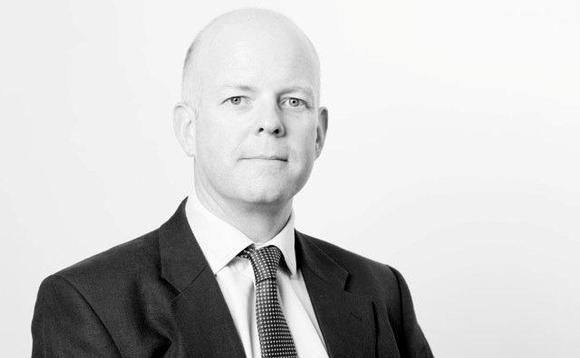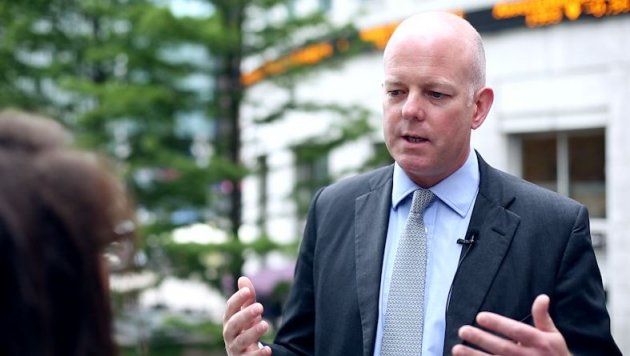Career Advice from the CEO of Salamanca Risk Management
By
6 years ago
It’s great when you know what you want to do but, if you don’t, there are some good starter careers that will reap dividends. Heyrick Bond Gunning explains how six years in the army prepared him for a job in the fast lane


So you have just graduated. Now everyone is asking you the same question: ‘What do you want to do?’ I remember it clearly, and it began even before I had left Harrow. And I found it an incredibly difficult question to answer. I wasn’t studying vocational subjects and I didn’t have a burning desire to follow a particular profession, but I did know that I wanted to enjoy myself and earn enough money to have some fun. It was all pretty vague but it was a start.
It helps to realise that a career is a series of steps. There is a pressure to focus on the end goal, which can be daunting, especially if you don’t have much clarity over what that end goal looks like. The key is to gradually build your CV to achieve your goal and ensure you are not restricting your options. In my case, I wanted to do something that would be viewed as a solid foundation for future opportunities. I had enjoyed myself far too much at Manchester University and graduated with a stunning 2:2, so the predicted tidal wave of job offers was more of a trickle.
‘I wasn’t studying vocational subjects and I didn’t have a burning desire to follow a particular profession, but I did know that I wanted to enjoy myself and earn enough money to have some fun.’
I wanted some good training and practical experience that would demonstrate my ability to lead, would not involve sitting behind a desk and would give me time to broaden the options available to me. So I joined the army as an officer in the Grenadier Guards. This involved a year at the Royal Military Academy Sandhurst where, from having had only 18 hours of lectures a week at university, I was faced with a rigorous 18-hour schedule every day. It was a wake up call.
The advice I was given before going to Sandhurst was to make sure you are fit, remember that you have two ears, two eyes and one mouth and to use them in that proportion. It was a piece of advice that is worth bearing in mind for any new job. You should be a sponge – suck up the information, never be afraid to ask questions and be energetic. In addition, volunteer for things that are outside your comfort zone. This is something I have tried to do throughout my career for two reasons – life is for living and it makes you stand out.
Six years in the army saw me serving in Northern Ireland, undertaking public duties in London, training recruits and, above all, making lasting friendships. During my leave, I secured work experience through various friends and and kind, random introductions.
The well-trodden path for army leavers is into leadership consultancies, security companies, the city, headhunting and insurance. This helped me work out what I did not want to do. I then set about talking to as many people as possible. Use your address book, your parents, their friends and anyone you can think of. Ensure you get a further two to four introductions after each meeting. Finding a job involves luck and hard work. If you are not out talking to people you won’t get a job.
‘Remember that you have two ears, two eyes and one mouth and to use them in that proportion.’
Remember, every meeting is actually an interview so ensure you have done your research, follow up after the meeting and update them when you finally get a job. This is crucial, as you never know when you will meet them again – they may even become a client. I had about 40 meetings when I was leaving the army and was offered four jobs. I took the riskier one in a start-up with huge potential that offered me a broad role. Working at Mergermarket, a financial services website, taught me more in those three years than I had learned in a lifetime. The business went on to be a huge success.
After three years, I received a phone call from DHL in the Middle East asking if I would be interested in setting up their business in Iraq. They were after someone who had military experience and had been involved in a start-up. The safe option would have been to say no. I said yes. It lead to an amazing year, which became the subject of my book Bagdad Business School, and that year opened up the doors exponentially for when I returned to the UK and started looking for a new job.

I was 32 at the time and, for the first time in my life, I really knew what I wanted to do. I wanted to run my own company, focusing on business intelligence and risk consulting. There were a few steps to take before I could set up on my own, so I spent three years with the two largest companies in the sector, Kroll and Control Risk, which saw my running the kidnap for ransom team, amongst other things.
Then I joined a friend who had set up Salamanca Risk Management (SRM). There were two of us and through hard work and a few twists and turns along the way, we built the business to one that has offices in five countries and 65 employees. SRM is well on the way to becoming the best intelligence and risk management business, recognised for quality, agility and innovation.
Through teamwork and a real focus on our clients, we have built a successful business. Therein lies my final p iece of advice – whatever business you get involved in, you will have clients. Get to know them, understand what they want and how you can help them achieve their targets. If you get that bit right, and combine it with enthusiasm, energy and attention to detail, you will succeed – it’s exactly what we look for when we are recruiting into SRM.
This article was originally published in School House Magazine.



